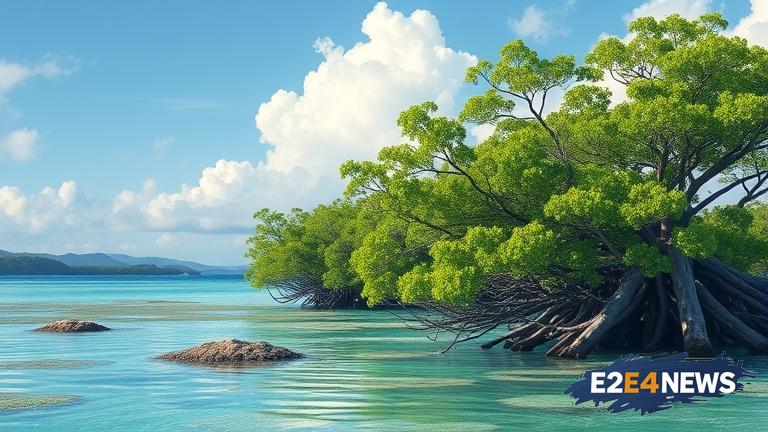The state of Sabah in Malaysia and Japan have renewed their mangrove conservation pact, underscoring the importance of collaborative efforts in protecting these vital ecosystems. Mangroves, found in coastal areas, play a significant role in marine biodiversity, acting as nurseries for numerous fish species, protecting shorelines from erosion, and supporting the livelihoods of local communities. The conservation of mangroves is crucial due to their rapid degradation and loss worldwide, largely attributed to human activities such as deforestation, pollution, and coastal development. The partnership between Sabah and Japan focuses on the conservation and sustainable management of mangrove forests, recognizing the ecological and economic benefits they provide. This renewed pact signifies a continued commitment to environmental protection and sustainable development. The collaboration involves sharing knowledge, technology, and expertise between the two parties to enhance conservation efforts. Japan, with its advanced technology and experience in environmental conservation, will provide support and guidance to Sabah in managing and protecting its mangrove areas. Sabah, known for its rich biodiversity and extensive mangrove forests, will benefit from Japan’s expertise, aiming to balance economic development with environmental conservation. The project also includes community engagement and education, highlighting the importance of mangrove conservation to local residents and involving them in the protection and management of these ecosystems. By working together, Sabah and Japan aim to not only preserve the mangrove forests but also to promote sustainable livelihoods for communities dependent on these ecosystems. The conservation of mangroves also contributes to climate change mitigation, as these forests are significant carbon sinks. The renewal of the mangrove conservation pact is a positive step towards achieving global environmental goals, including those outlined in the United Nations’ Sustainable Development Goals (SDGs). It emphasizes the role of international cooperation in addressing environmental challenges. The partnership is expected to have a positive impact on biodiversity conservation, ecosystem services, and the well-being of local communities. Furthermore, it sets a precedent for other regions to engage in similar collaborative conservation efforts. The success of this partnership will be monitored through regular assessments and evaluations, ensuring that the conservation goals are met and that the partnership remains effective. In addition to the environmental benefits, the collaboration between Sabah and Japan also fosters cultural exchange and understanding, promoting mutual respect and cooperation between the two nations. This renewed commitment to mangrove conservation is a testament to the growing recognition of the importance of preserving natural ecosystems for future generations. The involvement of local communities in the conservation process is crucial, as it ensures that the benefits of conservation are shared equitably and that the needs and concerns of local residents are addressed. Overall, the renewal of the mangrove conservation pact between Sabah and Japan is a significant step forward in the global effort to protect vital ecosystems and promote sustainable development. It reflects a shared vision for a more environmentally conscious and sustainable future. The partnership serves as a model for international cooperation on environmental issues, demonstrating that collective action can lead to meaningful and lasting positive change. As the world continues to face environmental challenges, the collaboration between Sabah and Japan on mangrove conservation stands out as an example of what can be achieved through commitment, cooperation, and a shared dedication to protecting the planet’s precious natural resources.
